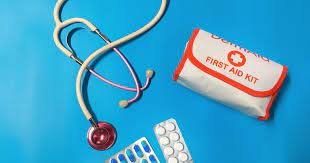Internal bleeding is a critical and potentially life-threatening condition, occurring within the body rather than on the surface. Prompt medical attention is crucial.
Explore the causes, symptoms, and basic first aid guidelines below:
Causes of Internal Bleeding:
Trauma:
Blunt force trauma (car accidents, falls, physical assault).
Penetrating trauma (stab or gunshot wounds).
Medical Conditions:
Medical Procedures:
Surgery complications.
Gastrointestinal bleeding (ulcers, diverticulitis, Crohn’s disease).
Organ rupture (spleen, liver, kidneys).
Aneurysm rupture.
Certain medications (anticoagulants, aspirin).
Diagnostic procedures (biopsies, endoscopies).
Symptoms of Internal Bleeding:
Pain:
Severe, localized pain, or generalized discomfort.
Aggravated by movement.
Swelling:
Visible swelling or distension in the affected area.
Changes in Skin Color:
Pallor (paleness).
Cool, clammy skin.
Weakness and Fatigue:
Lightheadedness or dizziness.
Rapid heart rate.
Blood in Urine or Stool:
Gastrointestinal bleeding may result in bloody vomit, urine, or stool.
Confusion:
Lack of mental clarity.
Fainting or loss of consciousness.
First Aid for Internal Bleeding:
Call for Emergency Medical Help:
Call an ambulance or seek medical assistance.
Provide location and follow instructions.
Stay Calm and Keep the Person Calm:
Reduce stress to avoid worsening bleeding.
Monitor Vital Signs:
Check for signs of shock (pale skin, rapid breathing, weak pulse).
Perform CPR if the person loses consciousness (if trained).
Do Not Give Food or Drink:
Empty stomach may be needed for potential surgery.
Keep the Person Warm:
Use a blanket to prevent hypothermia.
Elevate Legs:
If no suspected leg injuries, elevate legs about 12 inches
Reassure and Comfort:
Offer reassurance and maintain a calm environment.
What Not to Do:
Do Not Offer Pain Medication:
Pain medication may mask symptoms and delay proper diagnosis.
Avoid Giving Fluids:
An empty stomach is preferred for potential surgery.
These first-aid measures are temporary and do not replace professional medical care. Immediate attention from healthcare professionals is crucial for internal bleeding. Always seek medical assistance promptly.

